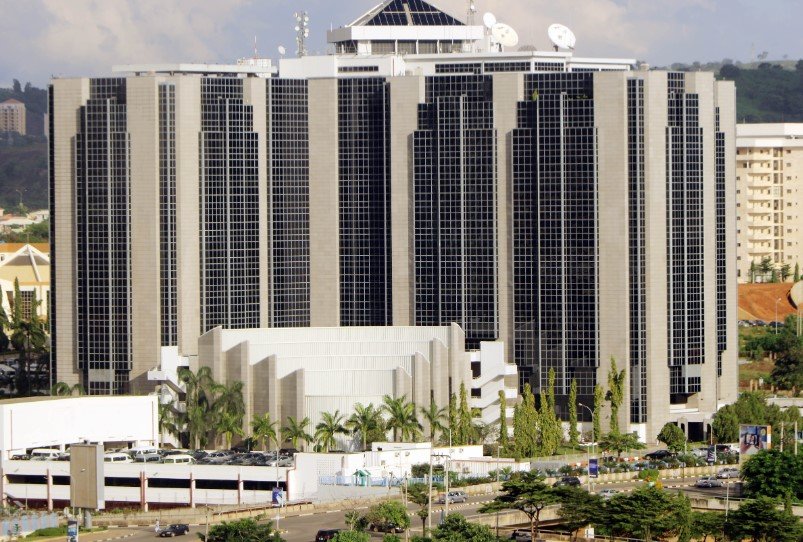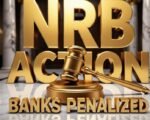The Central Bank of Nigeria’s clampdown on dividend payouts from banks under regulatory forbearance has sparked a heated mix of applause and anxiety across the financial spectrum.
In a move announced via a circular dated June 13, the CBN halted not just dividend payments, but also bonuses to top brass and any new offshore investments by affected banks. It’s a sweeping order—and one that’s already causing waves among shareholders, analysts, and even policy insiders.
CBN Puts the Brakes on Bank Freewheeling
This isn’t just a minor policy tweak. The CBN is drawing a firm line.
According to the circular signed by the Director of Banking Supervision, Dr. Olubukola Akinwunmi, the directive targets banks operating under forbearance conditions—those with shaky capital bases or high exposure to bad loans. Until they clean up their books and meet the Central Bank’s capital adequacy standards, they’re not allowed to reward shareholders or top execs.
The apex bank says it’s all about protecting the system.
“Some of these banks have been too generous with dividends and bonuses despite unresolved capital weaknesses,” a senior regulatory official who requested anonymity told us. “This isn’t punishment. It’s discipline.”
One sentence paragraph? Absolutely. Because the message is blunt.

Shareholders Aren’t Taking It Lightly
Naturally, investors are rattled. Some are even livid.
For shareholders, especially retail investors banking on steady dividend income, the suspension feels like being blindsided. They say it’s a blow to confidence—both in the market and the banks they believed in.
Olufemi Arowolo, a long-time investor in one of the listed tier-2 banks, didn’t mince words. “I understand the regulator’s concerns, but shareholders didn’t cause these problems. Yet we’re the ones paying the price,” he said.
Another shareholder likened the move to “grounding a flight while passengers are already buckled in.”
Still, the CBN isn’t backing down. And neither are some of the big institutional investors who support stricter oversight.
Experts Say the Tough Love Is Long Overdue
Not everyone’s up in arms. Some financial analysts are actually breathing a sigh of relief.
Adetilewa Adebajo, CEO of CFG Advisory, was clear on his stance. “Let’s be honest—too many banks have been skating by on weak risk management. This forces them to fix that,” he explained.
And then he dropped the key line: “This isn’t about optics. It’s about capital retention and balance sheet health.”
Industry watchers say the policy, while tough, is precisely what’s needed to wean the sector off years of reckless lending and inflated bonuses.
The CBN’s focus, in plain terms, is to stop leaky boats from sinking deeper. No more using fresh capital to paper over old cracks.
What’s Really Going On Under the Hood?
There’s a bigger story hiding behind the policy memo—and it’s all about risk.
Many of the affected banks are still dealing with high levels of non-performing loans (NPLs). Some are in the middle of recapitalization campaigns. Others are under watch for weak provisioning practices or foreign exposure mismatches.
Here’s a quick comparison to illustrate where things stand:
| Category | Healthy Banks | Banks Under Forbearance |
|---|---|---|
| Capital Adequacy Ratio | Above 15% | Below 10% |
| Dividend Payout | Allowed (with CBN nod) | Suspended |
| Offshore Expansion | Monitored | Frozen |
| Management Bonuses | Based on Performance | Halted |
| NPL Ratio | Less than 5% | Exceeds 10% |
One CBN insider put it bluntly: “We’re not saying these banks are bad. We’re saying they need to get their act together before they can share profits again.”
Short sentence. Big implications.
Mixed Market Signals as Policy Bites Down
On the floor of the Nigerian Exchange, it didn’t take long for the ripples to hit.
In the days following the announcement, shares of mid-tier banks dipped as worried investors began reassessing risk. But curiously, some large banks not affected by the policy actually saw gains—likely because they now look safer in comparison.
There’s also speculation that mergers or acquisitions might be back on the table. Industry sources say stronger banks could look to absorb weaker ones if recapitalization talks stall.
And then there’s the fixed income market.
-
Treasury Bills saw a spike in demand as investors sought safer yields.
-
Foreign investors are treading carefully, with some waiting to see how far-reaching the CBN’s scrutiny gets.
“This is the most serious tightening we’ve seen in years,” said one Lagos-based trader. “It could signal a major reset in how banks operate.”
Long-Term Trust vs. Short-Term Payouts
At the heart of the debate is a simple question: Should banks focus on short-term shareholder returns, or long-term stability?
Uche Ugboajah, a corporate finance lecturer at the University of Ibadan, thinks the choice is clear. “This is about trust. If a bank can’t prove it’s healthy, why should it be paying out anything at all?”
But others argue that punishing all shareholders, regardless of their role, sets a bad precedent.
Still, the CBN appears to be standing firm.
“Every financial system needs tough love sometimes,” Ugboajah added. “And frankly, this might just be what saves us from another crisis.”








